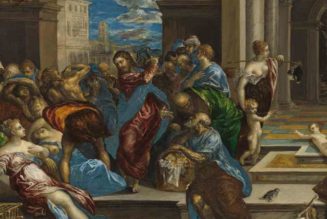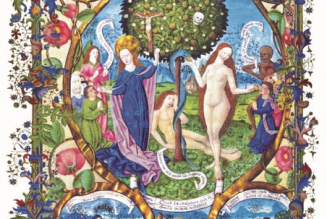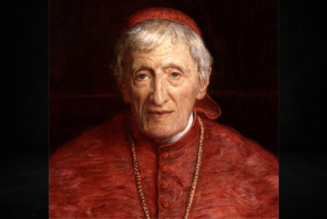
COMMENTARY: A university should be a place where students can pursue ultimate truths about God and the human person, not merely a place where they learn skills to help with employment.
Over milkshakes and burgers, one of my student’s fathers said to me that he could not thank me enough for the kind of formation his daughter was getting in the classics and in the faith at my university. He said we were providing her something that he himself could not have provided, and he even suggested that we run a summer program for parents at our satellite campus in Rome.
Did this father make a prudent choice for his daughter? After all, many people whose judgment I trust counsel their kids to forgo Catholic universities and instead attend subsidized state institutions. “The No. 1 rule,” they routinely say, “is don’t start life with debt.”
All things considered, can a government-sponsored alternative, even one with a high-octane campus ministry, be a better option than a Catholic university?
To work through the question, we first must ask: What is a university? For it seems as though it is just a place to get certain skills to help with employment, and if it is just this, perhaps little is lost by buying the secular counterpart.
In the medieval period, however, Catholics developed a different vision. They created the university as a place to bring about the unification of all learning under the supreme inquiries of philosophy and theology. By this measure, most educational institutions are universities in name only. There is no attempt to unite the various disciplines into a whole or to explain how they interface with God or even the human person as such.
What unifies the secular counterpart to the Catholic university? Only a commitment to excellence and a passionate campus athletics culture, but not the quest for ultimate truth.
The Catholic university, faithful to its heritage, introduces students to a conversation about the unity of all learning in reference to the God that creates and thus unifies the universe. Note well: The very unity of the university is found in the unifying principle of the universe, namely, God the Creator.
In this way, there is much more to being an educated Catholic than knowing one’s way around the Catechism and being drilled in apologetics — as laudable skills as these are. It is to be brought into a perennial conversation of great seekers of God and there, in that conversation, to find one’s own voice.
The second preliminary question is: What are professors for? Are they there to make discoveries about just anything at all? To share their own pet theories about things? Or are they there to share and inspire apprentices in the art of truth-seeking regarding those things that really matter?
In the Catholic tradition, teaching is part of the vocation of the professor, rather than a diversion from research. Professors impart to the students not just the latest trends but also the best discoveries of all time in the belief that education should always be transformative and challenge the contemporary world. Truth is only had, St. Augustine says, by being given away.
The third preliminary question comes from the fact that education is wider than the classroom, because much of a student’s formation comes from spending long hours in the company of his or her friends. What is the critical mass of students like? Is it easy or nearly impossible to find inspiring friendships? At Catholic universities, students have a fighting chance at forming friendships of substance — friendships, that is, that will enhance their own search for ultimate truth.
This past summer, for example, some of my students had Zoom meetings to read Tolkien together. These are the same students I had the joy of reading Plato’s Republic with one night on the rooftop patio of a hotel in Athens, which overlooked the illuminated Acropolis.
In light of the above, we can hazard an answer to our primary question: the Catholic university affords a great value; the alternative subsidized by the state might be shinier in externals (wow, did you see that weight room?) but lackluster on all the things that really matter (did you see they require all students to take a course in metaphysics?).
Of course, there is a related question: Are all Catholic schools worth the money? The answer, sadly, is probably not. Many are indistinguishable from their secular counterparts. But those that realize the higher calling of being a Catholic university, a place in which all learning is brought into connection with the illumination of faith, are pearls of great price.
What does prudence counsel? St. Thomas Aquinas was fond of paraphrasing Aristotle: “A small mistake in the beginning is a big one in the end.”
College is an opportunity to give a great gift of love, to set loved ones on a path with others forged by giants such St. Bonaventure, St. John Henry Newman and Pope St. John Paul II, a path that pays rich dividends, not only for work but also for leisure, not only for reason but also for faith, not only for friends but also for family, Church and the nation.
If you send them to a Catholic university, do not be surprised when they return on breaks full of interesting things to talk about, full of joy at being alive, and more thoughtful than before about the truths of the faith.
Chad Engelland, Ph.D., is professor of philosophy at the University of Dallas (UD). He and his family spent two years accompanying four groups of UD students on their travels during their Rome semester. He is the author of four books, including The Way of Philosophy.









